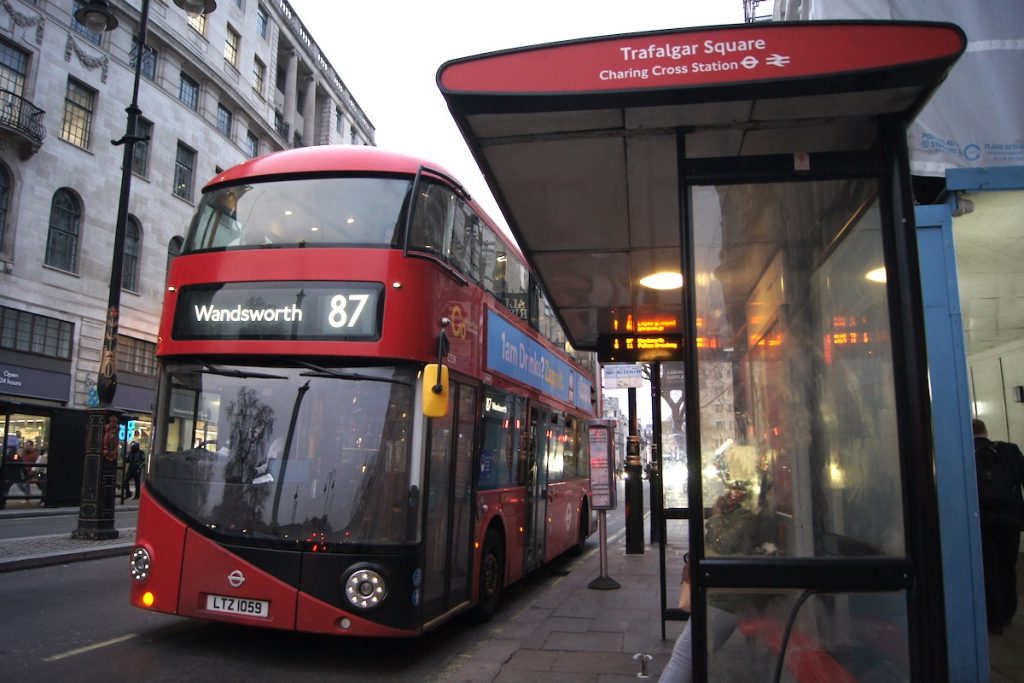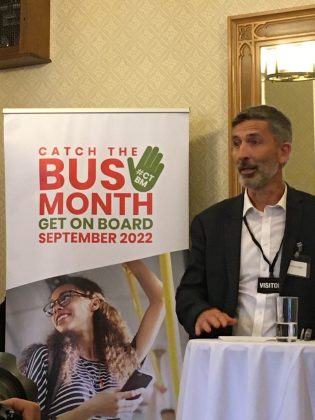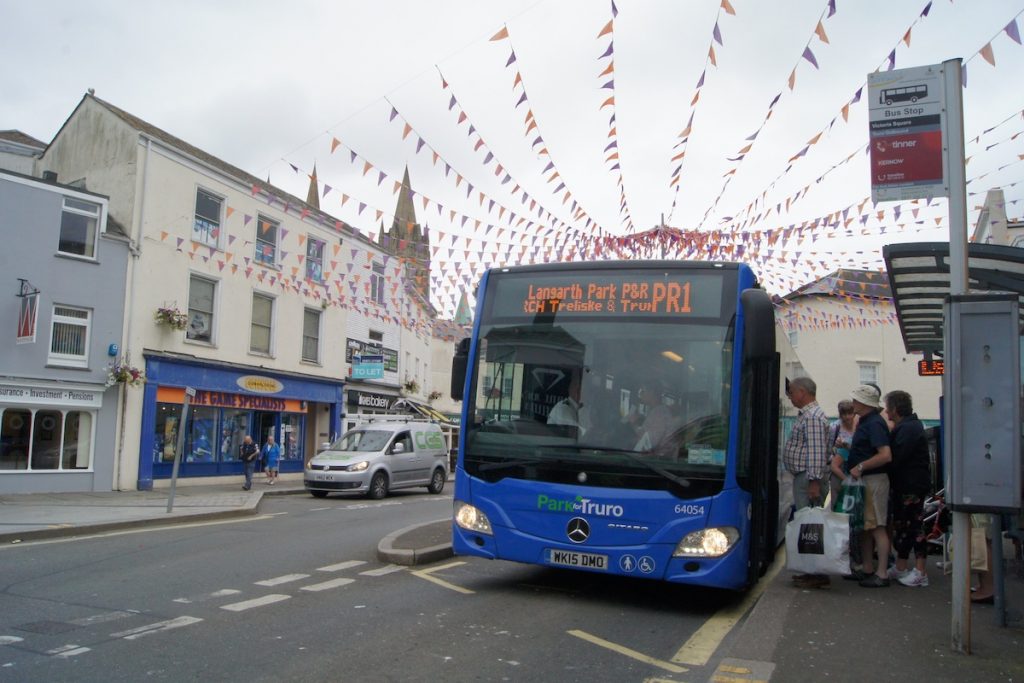
Britain’s new Government has been urged to start promoting sustainable modes of travel such as buses more vigorously in order to meet transport carbon emission reduction targets.
Speaking in Westminster on Tuesday to mark the start of ‘Catch the Bus Month’, Greener Transport Solutions founder Claire Haigh said without “immediate and drastic action” our chance of avoiding climate disaster “will slip away”.
She acknowledged the war in Ukraine, rising inflation and record food and energy prices all demand focus, but warned the world “cannot afford any backsliding on decarbonisation”.

The root of all the challenges we face, she added, is our dependency on fossil fuels.
“Transport is the fastest growing source of greenhouse gas emissions and the biggest polluting sector of the UK economy,” said Claire. “The bus has an absolutely essential role to play here,” in getting larger numbers of people to travel in a more environmentally sustainable manner.
She added that the recent announcement of a £2 cap on single bus fares in England to be introduced in January is very welcome, but pointed out the measure is only set to last for three months.
Claire also said that “unfortunately, all the price signals are going the wrong way – the cost of motoring has been falling in real terms and public transport increasing over the past 20 years – and we have got to correct that.”
She added: “The transport sector “can do a lot more” to “paint a positive picture of what a zero carbon future could look like”.
More funding urged

Also addressing the launch of ‘Catch the Bus Month’ – organised by Bus Users UK – the Confederation of Passenger Transport UK’s chief executive Graham Vidler called on the incoming Transport Secretary to commit to “finishing the job of the National Bus Strategy”.
He remarked that the strategy has “hardly started” claiming that only about £1 billion of a £10 billion ambition has been funded so far.
Graham said the Government must do more to address the shortage of bus drivers and to “get behind the bus and start to undo the damage from two years ago with the clear message (at the start of the pandemic) to avoid public transport”.
“What I hope we can do this month is be really confident about the benefits of bus travel,” he added, and to “talk about the positive benefits of bus travel now rather than the potential benefits in the future.
“Let’s talk about the hundreds of thousands of bus services that run every day, rather than fixating on a handful that have reduced or changed,” he added. “Let’s focus on the environmental benefits of travelling by bus now rather than simply talking about the environmental benefits of zero emissions in the future. And let’s talk about the affordability of bus services now and not just from January.”
Understanding rural challenges
Also addressing the event was University College London emeritus professor of transport studies Roger Mackett. He remarked that national policy makers based in London are unlikely to fully understand the difficulties faced by bus users elsewhere around the country.
He suggested politicians might walk around Westminster and see “dozens of buses around Parliament Square and Whitehall and think ‘what’s the problem?’ Yet out in rural areas you will find a whole lot of areas where bus routes are being cut back.
“I expect a lot of politicians rarely go on buses,” Professor Mackett added.
Bus Users UK chair Ben Colson told the event that people “never know when they may need a bus” if, for instance, they suddenly suffer from a new health problem and cannot drive a car.
Buses also serve as an “adjunct to Government policy” around the environment, economy and social issues, “but we must never lose sight of the individual”.

Published on Transport Infrastructure News, 7 September 2022